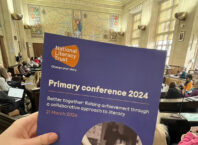Non-existent awareness of leukaemia symptoms “extremely worrying” – as new figures show people in the East of England don’t know bleeding, bruising, fatigue and infections are a sign of the blood cancer
Leading UK leukaemia charities launch memorable new campaign to get people “parroting on” about the symptoms for Blood Cancer Awareness Month in September
People in the East of England are being urged to take notice of the symptoms of leukaemia, as new research published today shows that none of those surveyed in the region were able to identify ALL four of most widely reported symptoms[1] – fatigue, bruising, unusual bleeding and repeated infections.
Leukaemia is a form of blood cancer affects people of all ages and 28 people receive a leukaemia diagnosis every day in the UK – that’s over 10,000 every year. Overall survival for leukaemia stands at just over 50%[2] – making it one of the most deadly forms of cancer.
Early diagnosis could saves lives[3], yet the recent public survey by leukaemia charities Leukaemia UK and Leukaemia Care, found that over that over two-fifths (41%) of respondents from the East of England could not recognise ANY amongst the four most widely reported symptoms of the disease[4], which kills 5,000 people a year in the UK, and which is often diagnosed too late.
The two charities are collaborating on an important campaign, #SpotLeukaemia, to raise awareness of the symptoms ahead of Blood Cancer Awareness Month in September. Blood cancer is the fifth most common cancer and third deadliest.
In a new film released today Leukaemia Care and Leukaemia UK have called on the expertise of ‘Henry’, a talented Macaw parrot, to try to make the symptoms of leukaemia memorable. The ad sees Henry using a range of objects to create a catchy and repetitive ‘Spot Leukaemia rap’ featuring the symptoms of leukaemia.
People who are concerned about any of these symptoms – fatigue, bruising, unusual bleeding and repeated infections – are being strongly urged by the charities to contact their GP and request a blood test. More information is available on the Spot Leukaemia website at www.spotleukaemia.org.uk.




